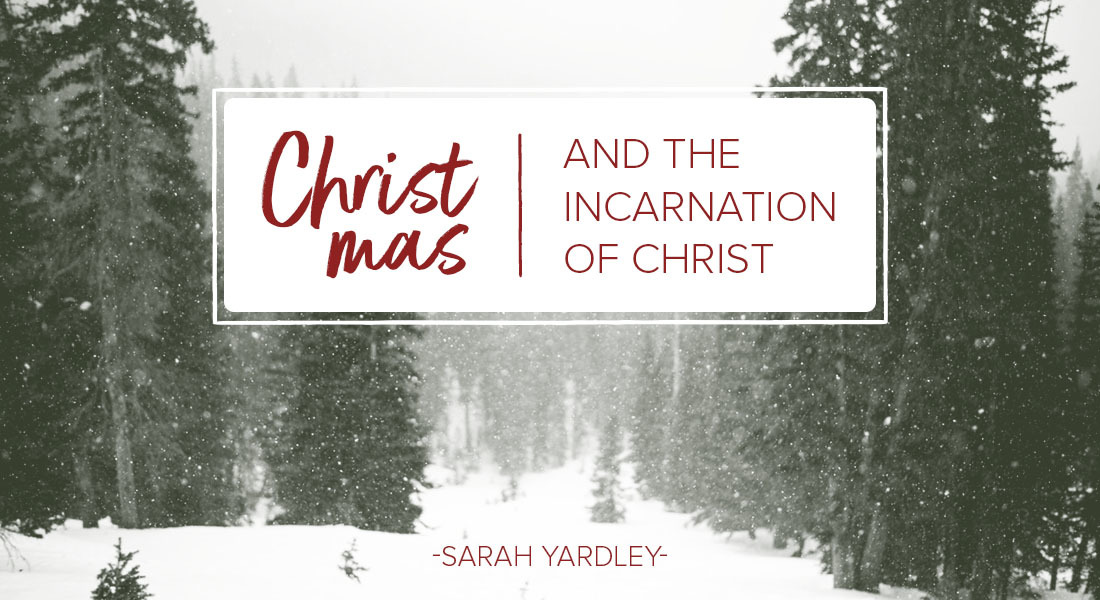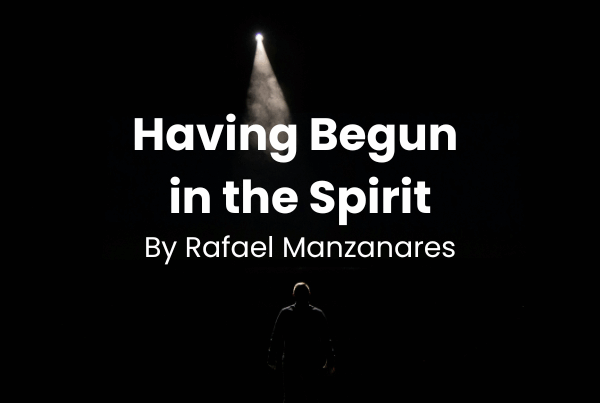
“And the Word became flesh and dwelt among us…” (John 1:14).
Christmas is a celebration of God in His humanity. Our faith is unique among world religions for this simple belief: Our God chose to stoop, to lower Himself, to become one of us. All of God’s Word to man became flesh and lived with us.
We read in Genesis 1:2 of a time when “the earth was without form and void.” From that formlessness, the Creation story tells us that God simply spoke, and at His word, light danced, waters separated, earth sprouted, waters swarmed, livestock and creeping things and beasts of the earth came to be. God spoke and “it was so” (Genesis 1:24).
But when it came to humanity, God chose to do something different, something far more personal. While Creation exists simply at His word, this first man, this Adam, was not spoken into existence – he was formed:
“Then the Lord God formed the man of dust from the ground and breathed into his nostrils the breath of life, and the man became a living creature” (Genesis 2:7).
This Hebrew word for dust is aphar, and it can mean “clay,” “earth,” “mud,” “ashes,” “ground,” “mortar,” “powder” or even “rubbish.” Formed from clay, holding the very breath of God, man’s story begins.
Our fragility is still evident to this day. We bruise, and at times, these bruises fester under the surface of our hearts. We crack, and the repairs are imperfect, pressure points still evident. We dread the firing process that will glaze our earthen vessels.
Throughout the Old Testament, we are reminded often that we are but clay:
“Remember that you have made me like clay; and will you return me to the dust?” (Job 10:9).
“For he knows our frame; he remembers that we are dust” (Psalm 103:14).
Over and over, the frailty of our humanity is echoed into the story until Matthew and Luke tell us of the extraordinary, history-shaping moment when the God of all the universe steps into the womb of an unwed mother named Mary, entering into clay.
Think of the most beautiful thing you have created, written, shaped, painted, designed. And then imagine choosing to become that thing.
This is the smallest glimpse of what God has done for us. The incarnation of Christ tells us that God, fully God, stepped into human flesh to become Man, fully Man. Because of the humanity of our God in Jesus Christ, we can be confident of three things (and many more):
First, our God is among us as the One who serves.
As we read in Philippians 2:7, He “emptied himself, by taking the form of a servant, being born in the likeness of men.” Our world celebrates big reputations (see Taylor Swift’s most recent album release), yet ours is the God who chose no reputation to transform our lives, minds and hearts.
Second, our God understands weakness.
In our places of pain and longing, He knows what it is to suffer and, “He can deal gently with the ignorant and wayward, since he himself is beset with weakness” (Hebrews 5:2). Jesus, the Word become flesh, is the God who knows the pain of a paper cut and the heartbreak of betrayal by a best friend. He chose to enter these pains so that He would be a God near, not far, from us.
Finally, our God has lived (the life we could not live), died (the death we could not die) and lives forevermore.
In the last book of the Bible, John has a vision of Jesus, and the living Son of God tells Him these things: “Fear not, I am the first and the last, and the living one. I died, and behold I am alive forevermore, and I have the keys of Death and Hades” (Revelation 1:17-18). This truth gives us an eternal confidence, that the Baby born in a manger is also the King who lives forever.
What then is our response to these things? To quote John Stott in Basic Christianity:
“If you read the Bible you’ll see that nobody who ever met Jesus Christ ever had a moderate reaction to him. There are only three reactions to Jesus: they either hated him and wanted to kill him, they were afraid of him and wanted to run away, or they were absolutely smitten with him and they tried to give their whole lives to him…”
Let’s be fully smitten, absolutely adoring, ever in love this Christmas season and give our whole lives away because of this love.






